Kansas City University (KCU), a comprehensive health sciences institution that is home to the fifth-largest medical school in the nation, celebrated commencement ceremonies for both its Kansas City and Joplin, Mo., campuses on May 3 and May 5, 2024, respectively.
KCU marked the largest graduating class in its 108-year history with 530 total graduates. The University conferred 425 Doctor of Osteopathic Medicine (DO) degrees from its College of Osteopathic Medicine (KCU-COM), with 60 earning dual degrees. Of the dual-degree graduates, thirty-three earned a Master of Business Administration (MBA) in Health Care Leadership through KCU’s partnership with the Rockhurst University Helzberg School of Management, 23 earned a Master of Arts (MA) in Bioethics from KCU, and four earned a Master of Public Health through KCU’s partnership with the University of Nebraska Medical Center. Two graduates earned an impressive three degrees: DO, MBA and MPH.
The KCU College of Biosciences (KCU-COB) conferred 15 Doctor of Clinical Psychology (PsyD) degrees and 93 Master of Science (MS) in Biomedical Science degrees.
Georges C. Benjamin, MD, executive director of American Public Health Association and the face of public health in the United States delivered a keynote address emphasizing the role of health care professionals as leaders who champion equity, influence policy and ensure the health of entire populations.
“I have always said the purpose of what we do as health professionals is to enable all of us to live as long as we can, as well as we can, and have a short, but glorious ending. The work you do when you leave here is a key component to meeting that goal,” said Benjamin. “I welcome you all to the next phase of your life in achieving optimal health for all, and I encourage you to work to make the well-being of our nation a top national priority.”
Marc B. Hahn, DO, KCU president and CEO applauded the graduates for enduring the extraordinary challenges they faced as they began their studies during the pandemic and against a backdrop of changing protocols and regulations, noting how even now they must enter their next phase of training and practice during these turbulent times. "Our world today, desperately needs the healing touch that only love and kindness can cure, always striving for peace and harmony; I have faith that our graduates will lead the way," said Hahn.
Graduates of the KCU-COM Class of 2024 will enter residencies in a wide range of elite specialties, including orthopedic surgery, psychiatry, vascular surgery, anesthesiology, urology and oncology. Additionally, more than 50 percent of the class elected to enter one of the primary care specialties, a broad field experiencing critical shortages throughout the nation.
A high percentage of KCU-COB master’s program graduates will pursue advanced education, entering doctoral and other professional programs to further prepare for careers as physicians, dentists and scientists.
The KCU PsyD program graduated its second class this year, with graduates having completed their pre-doctoral internships at training sites located in Missouri, Kansas, Colorado, Illinois, Mississippi, Nebraska, Utah and Virginia. KCU initially developed the PsyD program to address the nation’s growing mental health crisis and create an interprofessional education curriculum to prepare future health care professionals to better ensure the emotional and physical health of their patients. KCU’s PsyD program is the only PsyD program in the states of Kansas and Missouri.
Dr. Benjamin’s remarks came at an opportune time, as KCU is set to open a new Center for Population Health and Equity on the Kansas City and Joplin campuses. The vision of the center is to address health needs of urban and rural communities which share similar challenges in vastly different environments.
As Dr. Benjamin noted, health professionals can use their power as community leaders to create a prosperous and healthy environment. Kansas City University’s commitment to population health, health equity and society’s collective role in achieving these goals is unwavering. The graduating class of 2024 will carry the mission with them into their future practices as they continue improving the well-being of the communities we serve.
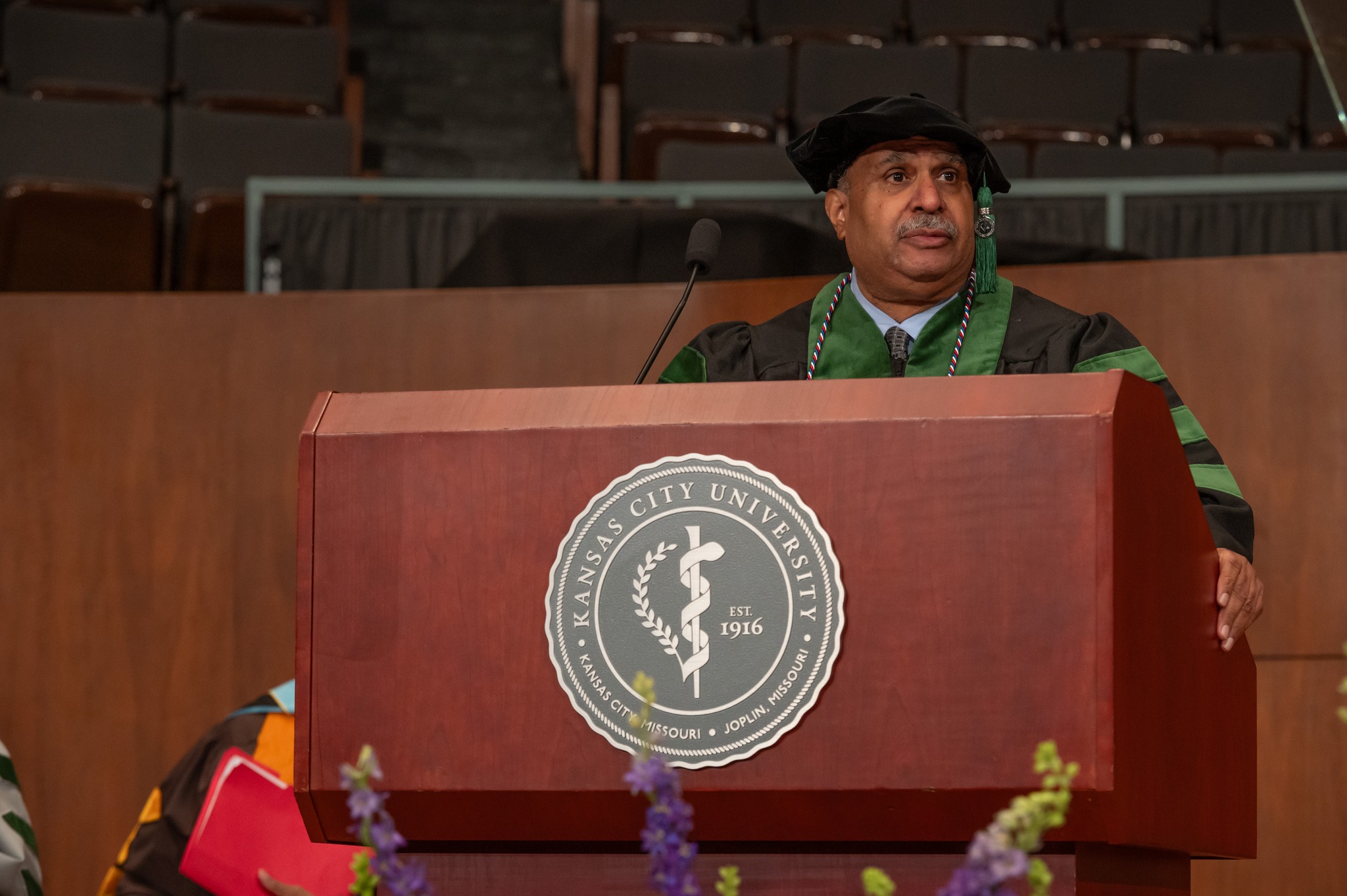
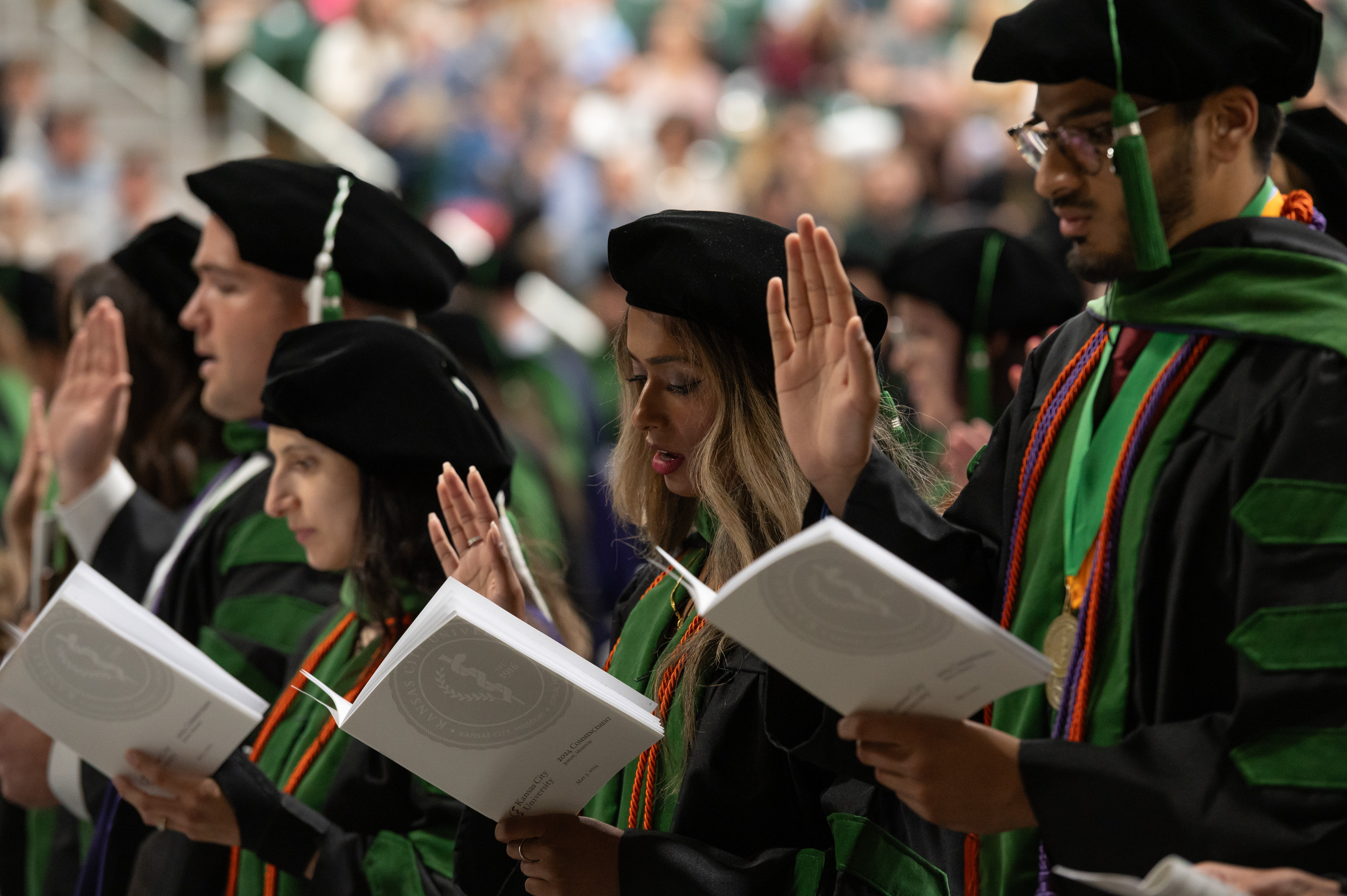
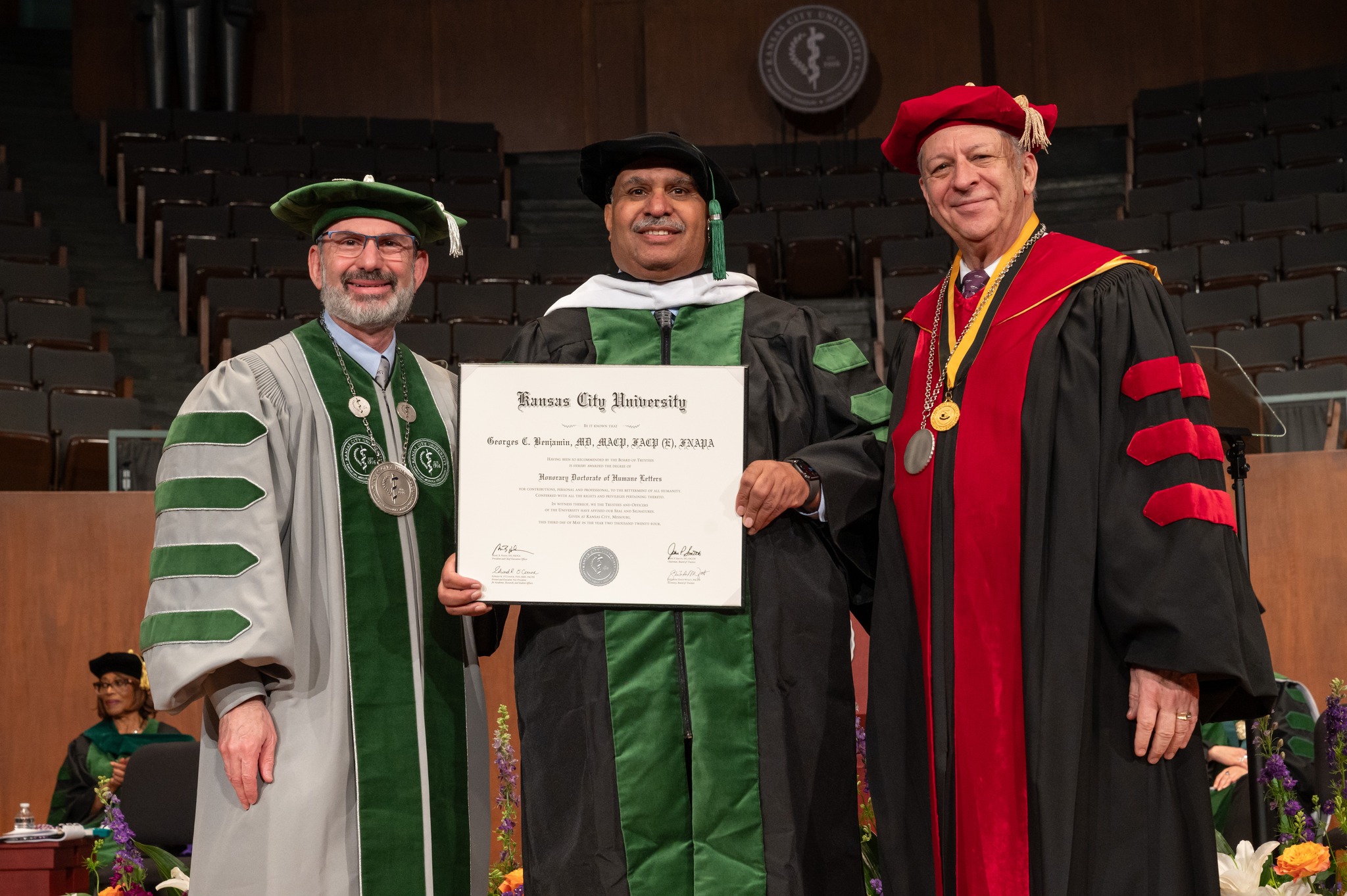


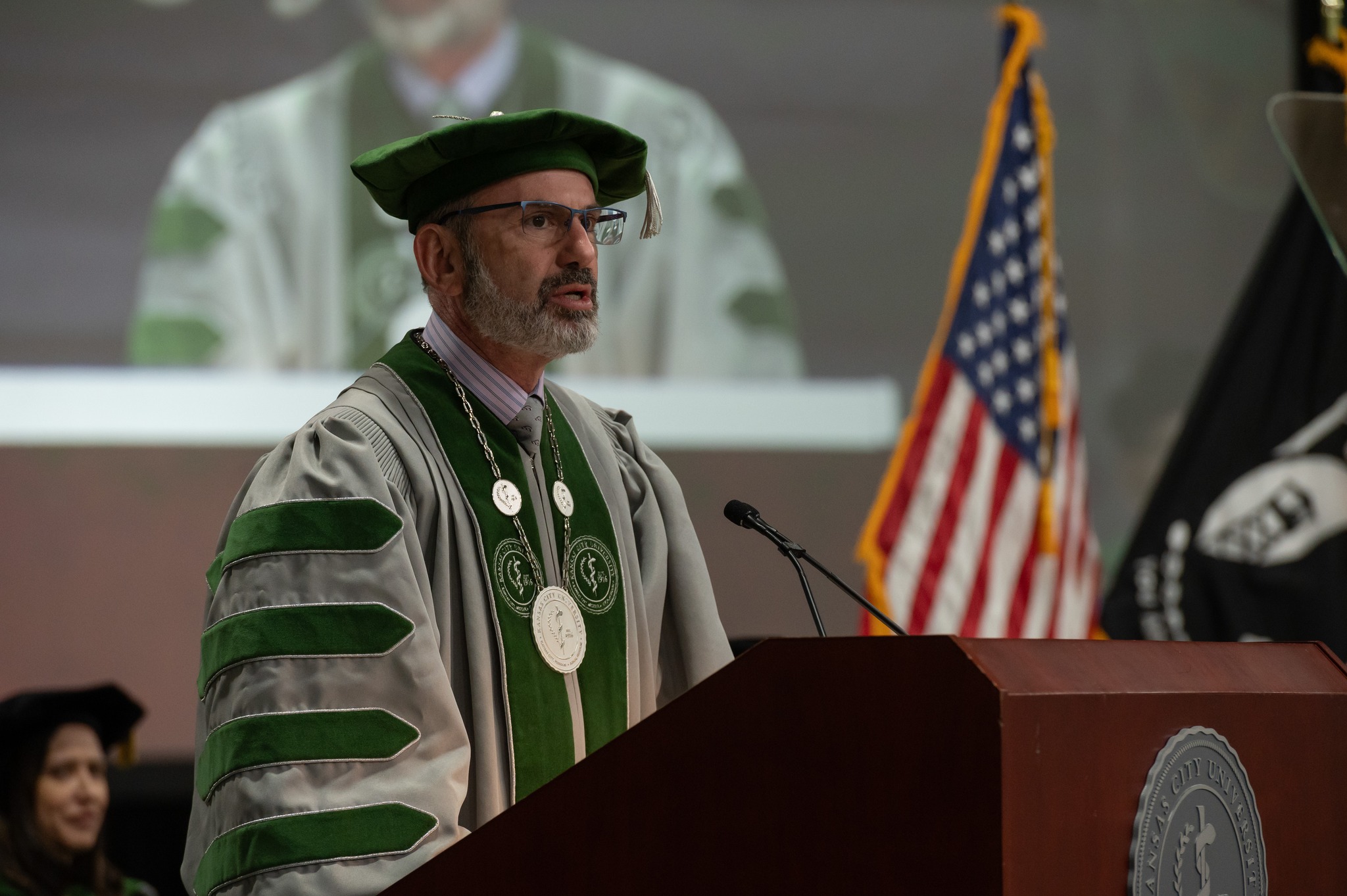
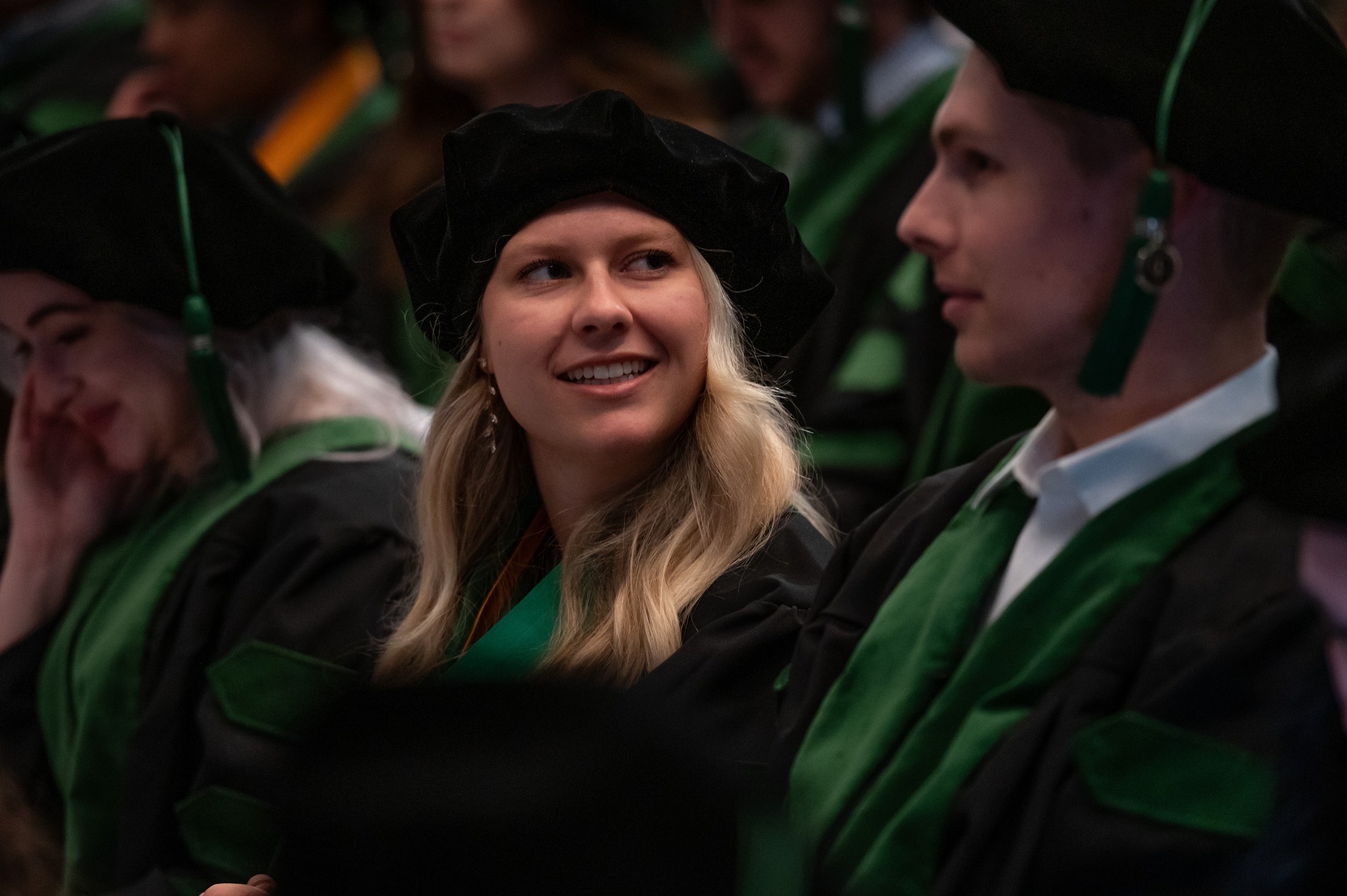
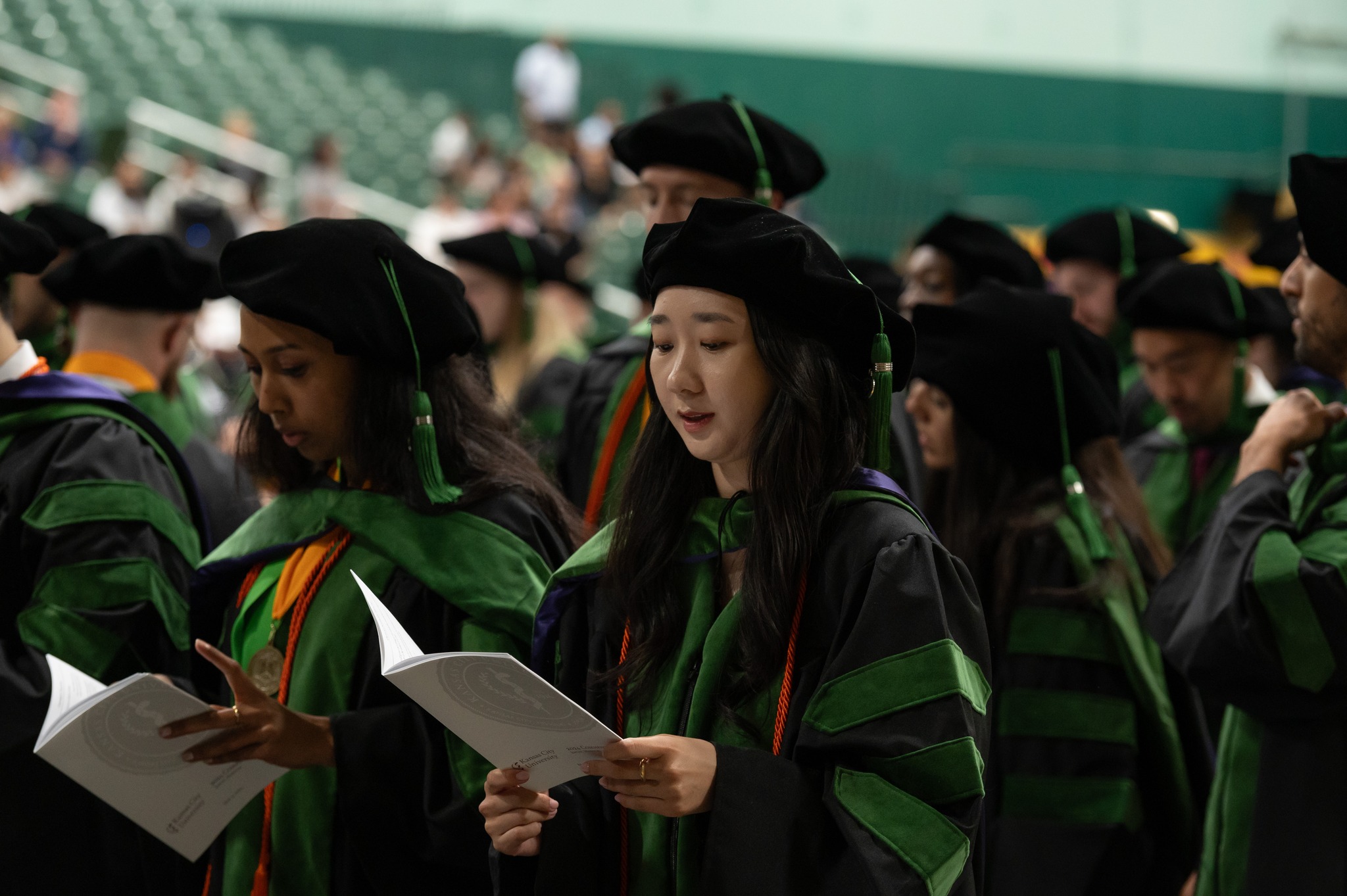
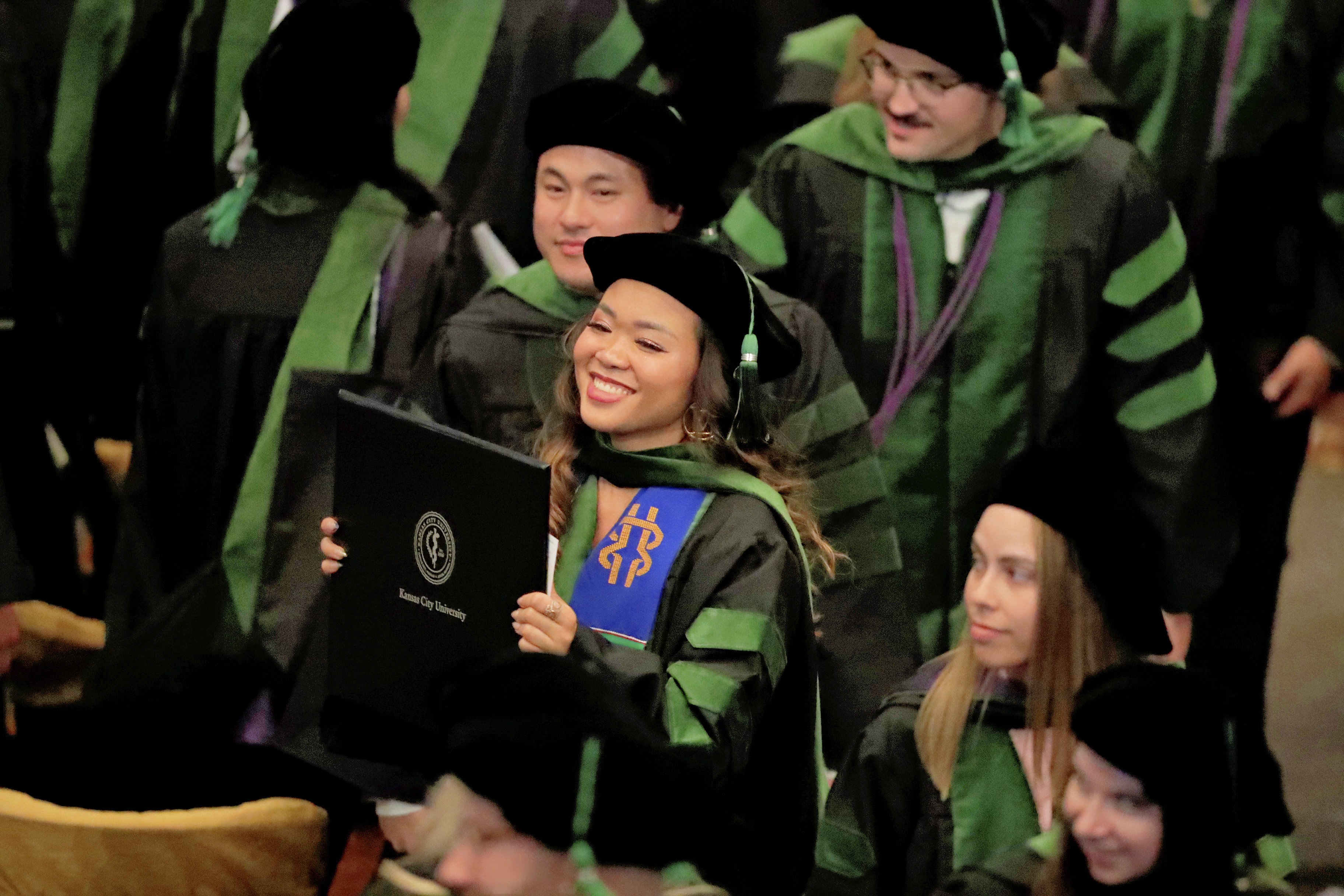


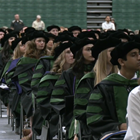

(0) Comments